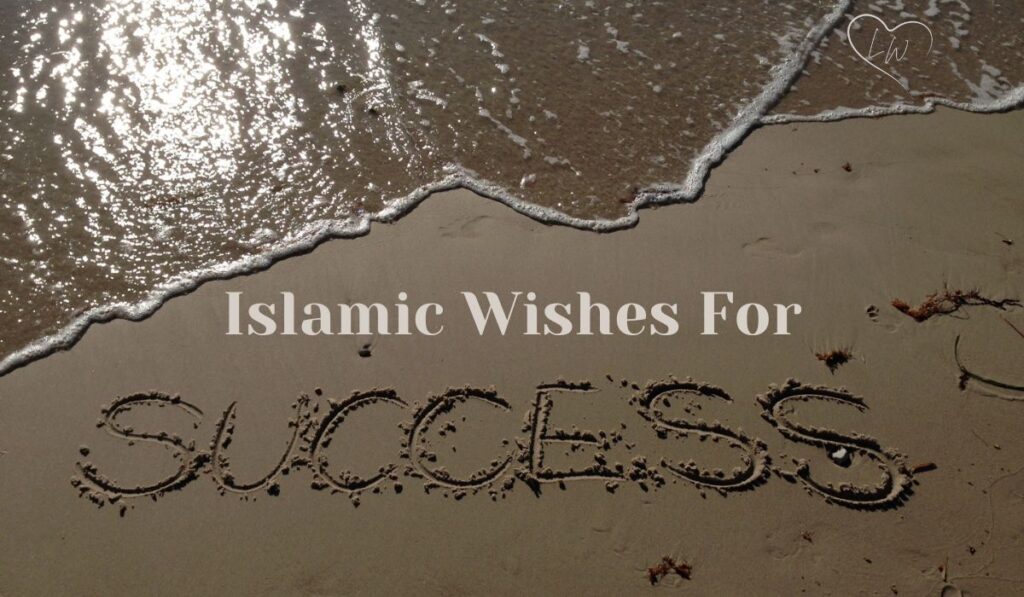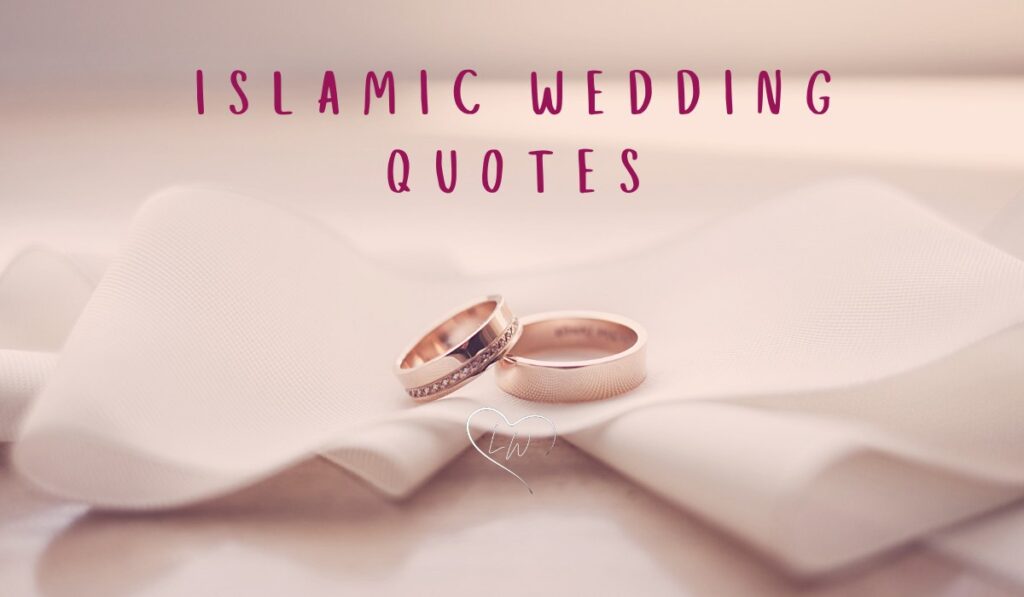The Joy Behind the Words: Eid Mubarak
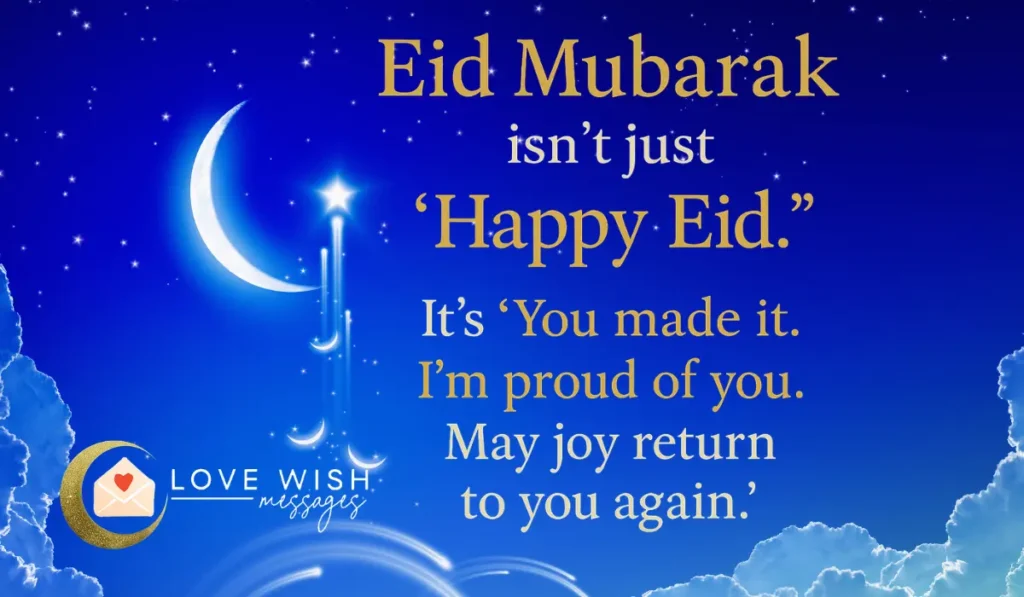
You wake up to a phone buzzing on your nightstand. A new message lights up the screen:
“Eid Mubarak!”
You pause. Smile. Maybe even exhale without realizing it.
It’s just two words. But somehow, they carry the weight of an entire season—of quiet effort, deep reflection, and prayer.
Because Eid Mubarak isn’t just a polite greeting. It’s a soft reminder. A heart-to-heart. A whisper that says:
“I see what you gave up. I see your patience. I’m praying today brings you peace.”
Behind those words are long nights of sujood. Silent duas. Quiet acts of charity. The kind of spiritual striving that doesn’t always show—but Allah sees.
Even in our fast-moving world, those two words slow everything down. They bring you back—to the smell of cardamom chai, the sound of family laughter, the memory of someone you wish could be there.
Eid Mubarak isn’t just “Happy Eid.”
It’s “You made it. I’m proud of you. May joy return to you again.”
What Does Eid Mubarak Mean?
Eid Mubarak (Arabic: عيد مبارك) literally means “Blessed Eid.” It’s the universal greeting Muslims use to celebrate Eid al-Fitr and Eid al-Adha, two of the most spiritually uplifting festivals in Islam.
But beyond the words, there’s something deeper. When someone says Eid Mubarak, they’re not just offering a happy holiday—it’s a heartfelt prayer for joy, forgiveness, peace, and renewed faith. It’s the kind of greeting that recognizes your spiritual effort and blesses the moment you’re standing in.
For many, saying Eid Mubarak is the first way they reconnect with loved ones after a long month of fasting or sacrifice. It’s a way of saying:
“May your heart be at peace. May your efforts be accepted. May your joy be multiplied.”
This greeting is shared after the Eid prayer, in person, over text, in cards, and on social media—uniting Muslims across countries, languages, and generations.
To understand how Eid is celebrated around the world, visit IslamicFinder’s guide to Eid celebrations
Also explore: Eid ul-Fitr Quotes in English & Urdu
How to Wish Someone Eid Mubarak (With Intention)
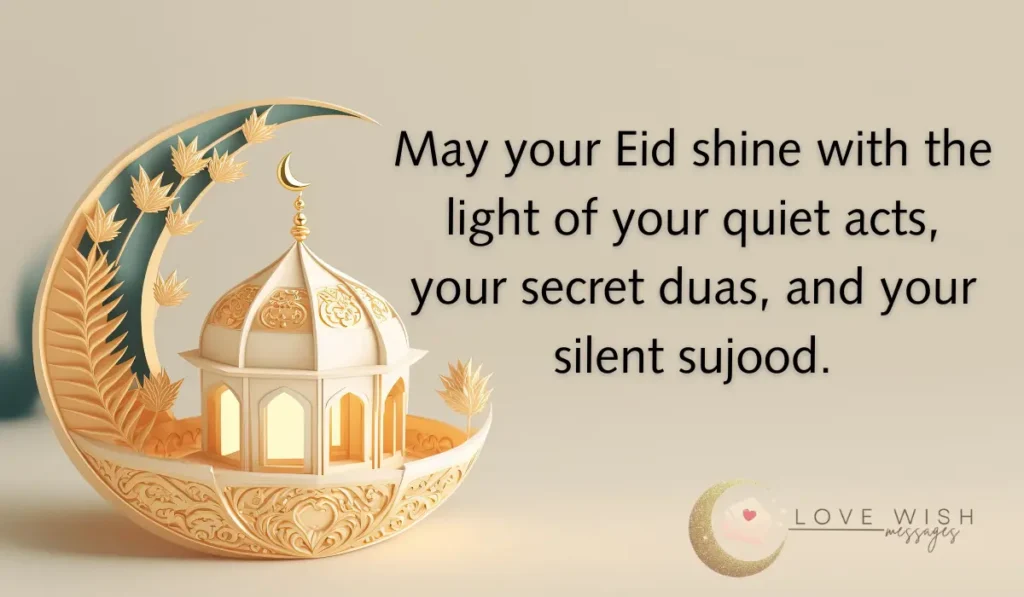
Saying Eid Mubarak may seem simple, but it’s more than a polite ritual. It’s a spiritual gesture of connection and celebration.
Here are some intentional ways to wish someone:
- “Eid Mubarak to you and your family. May Allah shower His mercy and blessings upon you always.”
- “Taqabbalallāhu minnā wa minkum – May Allah accept from us and from you.”
- “Wishing you light, laughter, and endless barakah this Eid.”
Want to personalize your greeting even more? Mention something the person did during Ramadan or a quality you admire in their faith.
That’s how a short message turns into something unforgettable.
For 70+ ideas to inspire your own message:
Visit 100+ Ramadan Wishes & Blessings
Eid Mubarak in Arabic and Urdu
For those who want to share Eid Mubarak in Arabic or Eid greetings in Urdu, here are some authentic phrases and their meanings:
In Arabic:
- عيد مبارك (ʿĪd Mubārak) – Blessed Eid
- تقبل الله منا ومنكم – May Allah accept from us and from you
- كل عام وأنتم بخير – Wishing you goodness every year
In Urdu:
- عید مبارک ہو – Eid Mubarak ho (May you have a blessed Eid)
- دعا ہے کہ یہ عید آپ کے لیے خوشیاں لے کر آئے – Praying this Eid brings joy to your heart
- اللہ آپ کو سلامت رکھے اور خوش رکھے – May Allah keep you safe and happy
These expressions are perfect for cards, WhatsApp messages, or Eid captions shared in a multilingual community.
See more in: Eid ul-Fitr Quotes in English & Urdu
Eid Mubarak Wishes for Friends and Family
Eid isn’t complete without sharing joy—and sharing dua. Whether you’re with your loved ones or sending a message across miles, these heartfelt Eid Mubarak wishes will help you express what matters most.
Heartfelt Eid Mubarak Wishes
- Eid Mubarak. May this day wrap your home in peace, your heart in gratitude, and your soul in light.
- To my dear friend—Eid Mubarak! May your fasts turn into forgiveness and your prayers into answered hopes.
- Wishing you a beautiful Eid filled with new beginnings, sincere prayers, and joy that lingers.
- As we celebrate this blessed day, may Allah bless your heart with contentment and your family with love.
- Eid Mubarak. May Allah draw you nearer, lift your worries, and bless you with a heart full of peace.
- From our home to yours—wishing you a joyful, meaningful, and spiritually rich Eid.
- Eid is sweeter when shared with souls like yours. Grateful for you always. Eid Mubarak!
- May your sacrifices be accepted, your duas answered, and your Eid overflow with barakah.
Looking for more heartfelt phrases to share during Islamic celebrations?
Browse: 735+ Islamic Wishes for Success
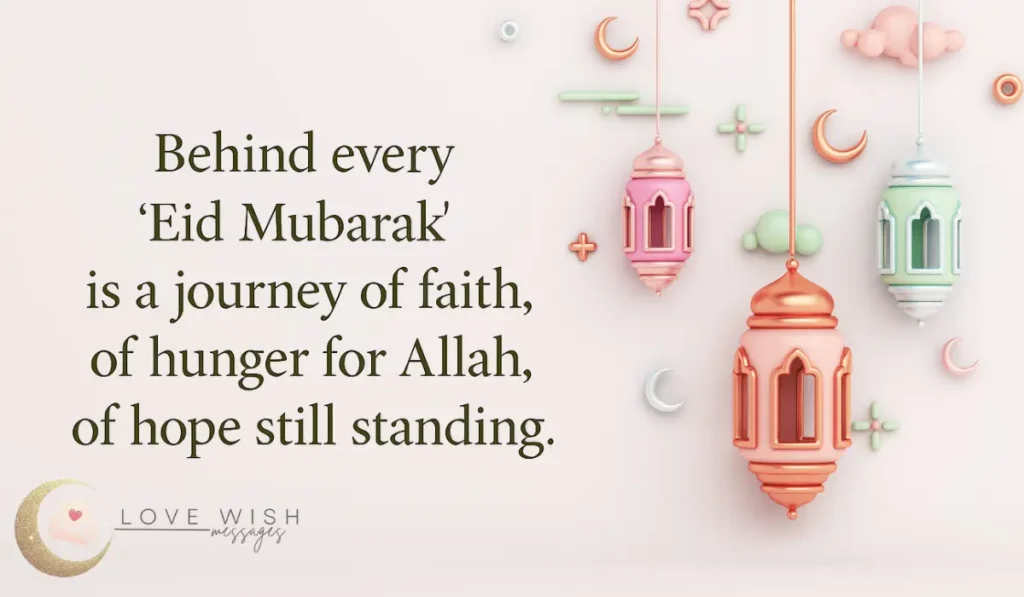
Formal Eid Mubarak Wishes for Colleagues
When you want to maintain warmth and professionalism, these formal Eid greetings are ideal for workspaces, emails, or community messages.
Professional & Respectful Greetings
- Wishing you and your family a peaceful, joyful, and prosperous Eid.
- May this Eid bring growth, clarity, and blessings to your personal and professional life. Eid Mubarak.
- Eid Mubarak. May the values of faith, generosity, and unity guide us in all that we do.
- Warmest Eid greetings to you and your team. Grateful to share this space of work and purpose.
- May the blessings of this sacred season uplift your home and inspire your days ahead. Eid Mubarak.
Playful Eid Captions for Instagram
Even your social feed can become a source of barakah. Whether you’re sharing Eid outfits, family gatherings, or Iftar tables, these captions add the right blend of joy and soul.
Instagram-Worthy Eid Captions
- Eid fit: checked. Spirit: lifted. Dua: whispered.
- Crescent moons and clean shoes.
- Eid is here—bring on the chai, samosas, and soul hugs.
- Smiling with sukoon and a full plate, alhamdulillah.
- Eid vibes only: modest fits, big hearts, sweet plates.
- A little sparkle, a lot of sabr.
- This joy? It’s from Him. Eid Mubarak.
Explore more: 100+ Ramadan Wishes & Blessings – many can be adapted for Eid captions too.
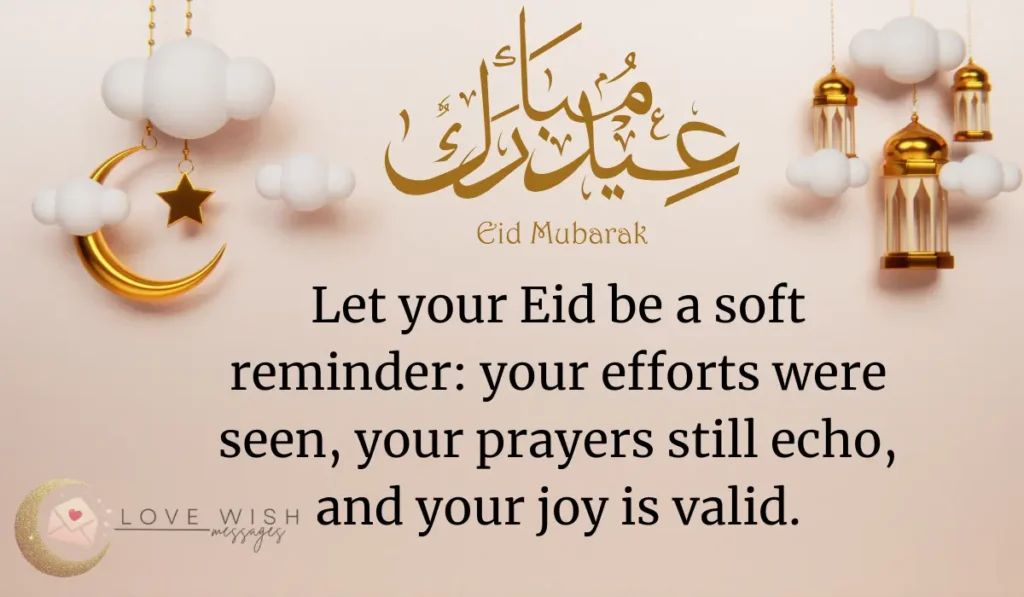
Eid Mubarak Quotes to Share
Sometimes a single quote can say what your heart has been meaning to express. Here are a few short, shareable Eid Mubarak quotes—ideal for cards, posts, and conversations.
Spiritual and Poetic Quotes
- “Eid Mubarak—because even joy feels sacred when it comes after patience.”
- “Let your Eid be a soft reminder: your efforts were seen, your prayers still echo, and your joy is valid.”
- “Behind every ‘Eid Mubarak’ is a journey of faith, of hunger for Allah, of hope still standing.”
- “Eid is a mirror—reflecting all the beauty you’ve built inside during Ramadan.”
- “May your Eid shine with the light of your quiet acts, your secret duas, and your silent sujood.”
For more inspiration, visit:
Islamic Quotes for Faith, Hope & Strength
Conclusion and Final Dua
When the day of Eid arrives, it’s not just the celebration that matters—it’s everything behind it.
The early mornings of sujood. The tears that only Allah saw. The silent patience, the unseen sacrifices, the whispered duas.
And somehow, with just two words—Eid Mubarak—we honor all of that.
So say it sincerely. Say it like a gift. Say it like a bridge between souls.
And may it always carry what you really mean:
“I hope your heart is full. I hope your faith is deep. I hope Allah is near.”
Final Dua
اللهم اجعل عيدنا هذا عيدًا مباركًا، واغفر لنا ما قدمنا وما أخرنا، وتقبل منا صيامنا وقيامنا
Allāhumma ajʿal ʿīdanā hādhā ʿīdan mubārakan, waghfir lanā mā qaddamnā wa mā akhkharnā, wataqabbal minnā ṣiyāmanā wa qiyāmanā.
O Allah, make this Eid a blessed one for us. Forgive what we’ve done and what we’ve delayed. Accept our fasting and our prayers.
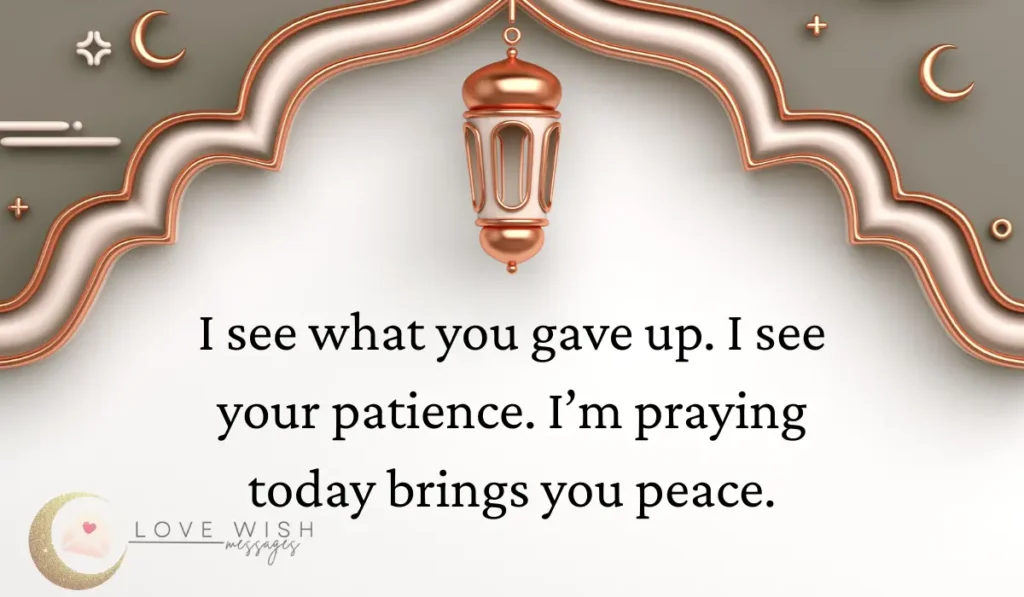
FAQs About Eid Mubarak
What does “Eid Mubarak” mean in English?
Eid Mubarak means “Blessed Eid”: a greeting used by Muslims to celebrate Eid al-Fitr and Eid al-Adha. It expresses prayers for peace, joy, and spiritual blessings.
How do you say Eid Mubarak in Arabic?
The standard Arabic greeting is عيد مبارك (ʿĪd Mubārak). You can also say:
تقبل الله منا ومنكم – May Allah accept from us and from you. For more, visit: Eid ul-Fitr Quotes in English & Urdu
Can I say Eid Mubarak to non-Muslims?
Yes. Non-Muslims may say Eid Mubarak as a respectful greeting to their Muslim friends. It’s a positive, inclusive way to honor the celebration.
